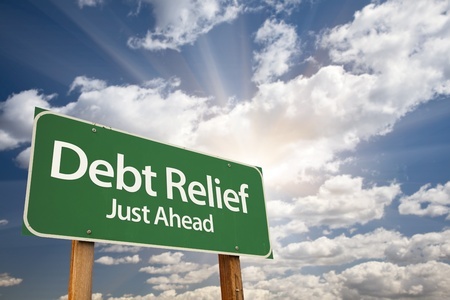


Are your debts causing you stress?

Then, consider Chapter 7 Bankruptcy protection.
Chapter 7 is the most common type of bankruptcy. It wipes out your debts, enabling you to start fresh financially. The debts that Chapter 7 eliminates includes credit cards, medical bills, deficiencies owed after repossession, lawsuits, and a variety of other debts.
Often, a person may keep certain secured debts, like their home or car, provided that they continue to make current payments and are up to date on the loan.
For most unsecured debts, there is no repayment required after they are discharged through Chapter 7 bankruptcy. The vast majority of your debts will be wiped out completely and permanently. Under most circumstances, the entire process takes less than 4 months to complete. After the bankruptcy is over, you do not have to pay back any debts that were discharged. You may, however, choose to pay back certain debts, such as debts to family members, but it is not legally required.
CHAPTER 7 ERADICATES:
• Credit Card debts;
• Medical debts;
• Personal loan debts;
• Lawsuit debts;
• Judgments - unless involving fraud or criminal fines, costs or restitution;
• Deficiency debts on repossessed autos and foreclosures;
• Personal injury debts, except criminal offenses resulting from alcohol/drug related driving involving injury
• Certain exceptions may apply.
CHAPTER 7 DOES NOT ERADICATE:
• Student loans except in undue hardship cases
• Debts from certain types of taxes
• Spousal support and/or maintenance
• Child support
• Fines, penalties or restitution resulting from criminal convictions
• Debts incurred through fraudulent conduct
• Debts incurred through intentional injury to person or property
• Debts from personal injuries caused by driving while intoxicated.
In order to qualify for Chapter 7 Bankruptcy, you must meet certain requirements. You cannot have filed a Chapter 7 Bankruptcy within the last 8 years. You must not have any major assets with a substantial amount of equity, such as a house or a brand new car that is paid in full. You cannot make a substantial income, unless you also have proportionately high expenses. As long as you meet these requirements, you can seek Ch. 7 bankruptcy protection.
PROBLEMS TO AVOID WHEN FILING CHAPTER 7
Because of the various nuances in Chapter 7 bankruptcy law, the specific terms of any filing will only become clear once the particular facts of your situation become known. However, if you are considering filing Chapter 7, there are a few things you should not do:
• Do not take any cash advances, or charge anything further on your credit cards;
• Do not make any property transfers;
• Do not pay any unsecured creditor, such as credit cards, personal loans, loans from family members, etc. more than $600 within 90 days prior to filing. If you do, it will be considered a preference and will make it more difficult for you to get a discharge.
THE PROCESS
Typically, with a Chapter 7 bankruptcy filing, there are no formal court appearances. You only appear for an informal meeting with your attorney and the bankruptcy trustee. This meeting, called a Section 341 Meeting, is scheduled 4-5 weeks after your case is filed. In this meeting, the bankruptcy trustee asks you a few very brief questions to determine whether you have any non-exempt assets. Your creditors are given notice of this meeting and are permitted to question you, but usually they do not attend the meeting. The meeting, itself, takes less than 10 minutes. However, you may wait quite a bit longer for your particular meeting to start, since multiple bankruptcy petitioners are scheduled at the same time. After the meeting, you wait approximately two-and-a-half months for your discharge papers to arrive in the mail.
SIGNIFICANT INDICATORS THAT CH. 7 MAY WORK FOR YOU:
• If you have little property except for the basic necessities like furniture and clothing;
• You have little or no money left after paying basic expenses each month—or you’re not even meeting basic expenses.
ADVANTAGES OF CHAPTER 7:
• Most unsecured debts can be discharged (completely eliminated);
• The process moves quickly—you may receive your discharge in just a few months;
• Creditors are forbidden from contacting you while the automatic stay is in effect and after your debts are discharged.
WHO CAN FILE UNDER CHAPTER 7?
• Debtors who qualify under the “means test” and complete a mandatory pre-filing session with a credit counselor may file for Chapter 7 bankruptcy protection.
If you want to explore your options, contact us to schedule your Chapter 7 bankruptcy consultation.


